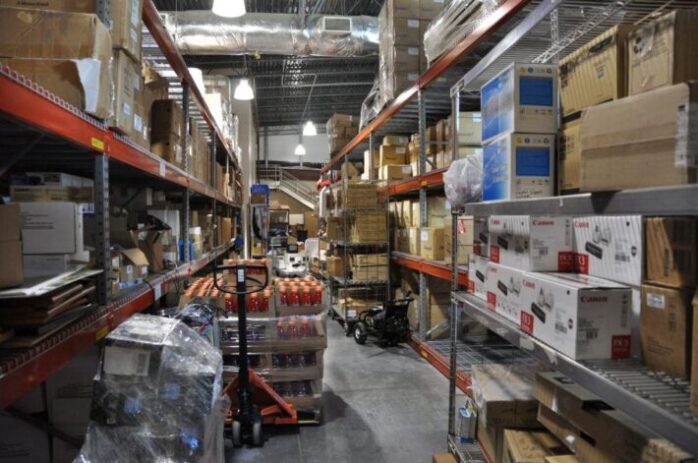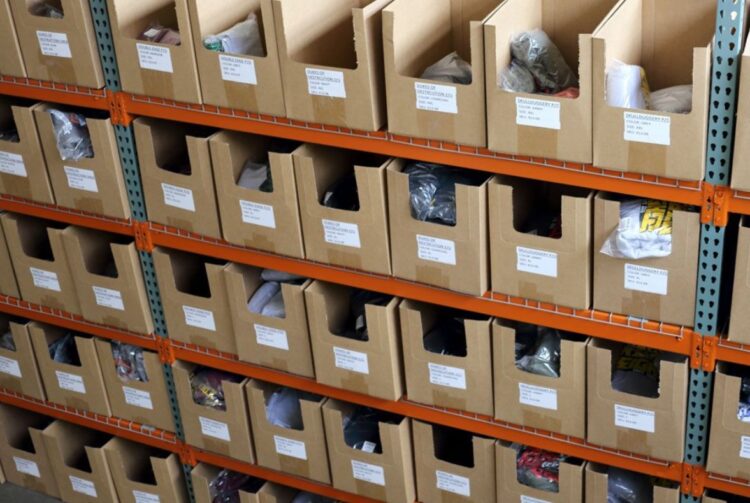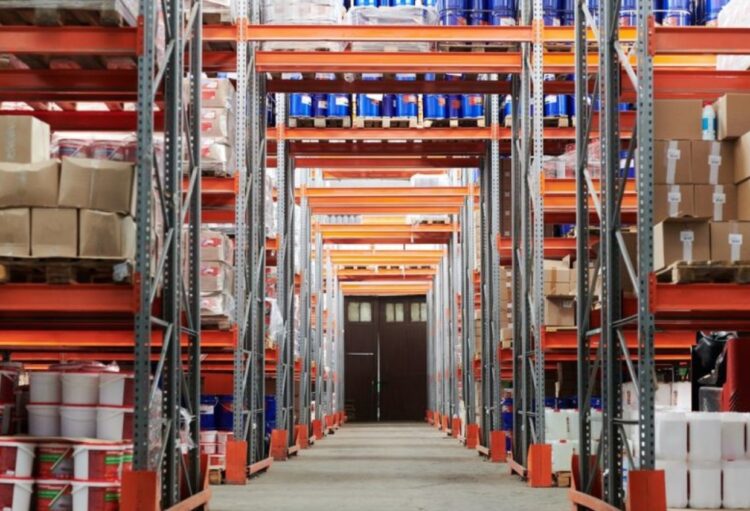
What is the number one factor that contributes to success? It is organizing things. It doesn’t matter what you are striving to do – be it your studies, career, or running a warehouse. The organization is essential and the primary founding factor for success and productivity.
After the pandemic, many businesses are re-opening, including warehouses. If you are a warehouse owner, there is a great possibility that you might be dealing with a disorganized and cluttered warehouse. If your employees are back, the situation might be even worse for them as they (employees) might have to pave their way through the clutter.
Our suggestion is to implement small changes first before moving on to the greater scheme of things. Before you start your warehouse organization journey, you might want to check out the Adaptalift Group forklift repair services in Melbourne since forklift trucks are essential at most warehouses.

1. Organize the Floor
If you are thinking about redesigning and re-organizing your warehouse, you ought to pay more attention to the floor plan as this is a crucial factor of optimizing the process flow of the warehouse. In other words, organizing doesn’t necessarily mean an “overhaul.”
Stocking up might be beneficial in the long run; right now, you need to step back and assess the contemporary warehouse layout and the current floor plan. You must set up the floor according to the order of warehouse operations.
For instance, in a typical warehouse, at first, inventory is received. Then, the inventory is stored, either in one region of the warehouse or multiple regions. After customers call for an order, the items are picked, packed, and moved on to the shipping department.
That said, make it a point to organize the warehouse floor according to the warehouse operations.
2. Incorporate Signage & Labels
Another way to organize your warehouse is by incorporating labels and signage. This can be implemented instantly throughout the different zones of your warehouse. By labeling the warehouse inventory and arranging collective signs at different warehouse zones, you will massively improve the flow inside the warehouse.
Moreover, it will also be easy for your employees to navigate through the warehouse and find things that need to be shipped or store things in their designated regions. This aspect can benefit new employees the most as they will be new to the surroundings and will naturally have a tough time finding the right places.
Don’t forget to add signage at places that are potentially hazardous work zones to curb and eliminate workplace injuries and ensure employee safety. By replacing labels, you can also minimize errors and boost employee productivity.

3. Provide Map Facility
A warehouse is a massive space that is difficult to navigate. You can provide maps to your employees to help them go to any place they want. Anyone who does not know much about the facility can go anywhere with the help of a map. You can paste the piece of map on the bulletin to guide everyone stepping into the warehouse.
4. Check the Storage Capacity
People use the warehouse to store different items. It is necessary to check the storage capacity to know how many items you can keep in that space. You should also consider the shelf space and keep things with enough space.
It should not look overstuffed because it does not look organized. Every warehouse has a different storage capacity, and therefore, you have to create records of everything.

5. Categorize the Inventory
There are plenty of items to stock in a warehouse, and you cannot keep them together. Therefore, you have to categorize the inventory and pick selected items. In this way, you will realize that all the similar items are kept in the same place.
It will look organized, and one can find anything inside the inventory. If any new person is hired, it will be easy for him to manage everything. You can get anything that you want quickly in the warehouse.
6. Make Strategies
It is hard to manage a massive space, and therefore, you have to make specific strategies. If you are a warehouse owner, you can assign different work to different people. It results in completing all the tasks on time.
Gather information regarding the shape, weight, and size of the inventory. Divide different types of movers and make strategies to manage tasks in the warehouse.

7. Create a Document for Return Handling Tasks
There is a return handling process that you need to manage appropriately. You have to follow some steps to ensure all your employees’ returns. In case of missing returns, the warehouse has to spend additional money. You have to take care of the documented process to maintain your warehouse efficiently.
8. Leave Some Space for Safety Stock
It is better not to avoid space for the safety stock. You must keep buffer space to keep extra items in an emergency. It is necessary to have various inadequate inventory levels for keeping unpredictable things. There are fewer chances of misplacing the inventory. You should always be prepared for the safety stock that can be stored in your warehouse.

9. Own a Warehouse Management System
If you want to manage your warehouse conveniently, then you can own a ready-made system to do that job. It is easy to categorize the inventory and come up with new strategies. When you implement the system, the organization of your inventory will become easy for you.
It is possible to do real-time tracking of the inventory. You can get a complete insight to manage all your business operations. Without anyone’s help, you can easily manage to fulfill all the company objectives.
Conclusion
You can also upgrade your warehouse by implementing a warehouse management system (WMS). The WMS will allow you and your employees to analyze and store all sorts of warehouse data, including the classification and slot of inventory, warehouse inventory tracking, and the warehouse’s overall functionality.
With an organized warehouse, you will boost employee happiness and overall productivity inside the warehouse.





